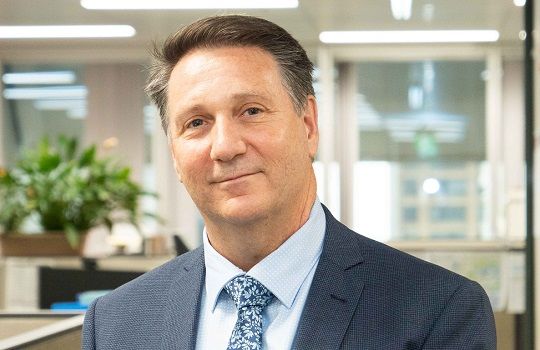
The Federal Government poaches Queensland’s digital chief to lead the Digital Transformation Agency; Defence industry minister picks up science and technology portfolios, with Christian Porter’s former industry ministry split in two; and the NSW Government appoints lead for its AI-backed road safety program.
– The Federal Government has appointed Chris Fechner to lead the Digital Transformation Agency (DTA).
Fechner, who commences his new role as DTA Chief Executive next month, currently serves as the Queensland Government’s inaugural Chief Customer and Digital Officer – a position he has held since February 2020. Prior to this, he was Chief Digital and Product Officer at Service New South Wales.
The role of DTA chief was vacated by Randall Brugeaud in June this year, after he announced he would lead the Federal Government’s Simplified Trade Systems Implementation Taskforce. Deputy Chief Executive Peter Alexander stepped into the role on an interim basis.
Employment, Workforce, Skills, Small and Family Business Minister Stuart Robert said Fechner would oversee the DTA’s ambition to be “one of the world’s leading digital governments by 2025”. The DTA currently oversees myGov, and its upcoming successor, GOVDXP, australia.gov.au, as well as the end-to-end ICT investment approvals process.
– A portfolio reshuffle has seen Federal Defence Industry Minister Melissa Price pick up responsibility for science and technology, with the former Industry, Science and Technology ministry held by Christian Porter effectively cleaved in two.
The ministerial changes, which follows the Australian Government’s signing of a new security agreement with the US and UK (the AUKUS) last month, were announced by Prime Minister Scott Morrison, with the PM noting that the science and technology portfolio would serve to complement Price’s existing defence industry responsibilities.
“It is timely, particularly given the AUKUS arrangements, which will see us be working together with the US and the UK, linking up our industry, our science and technology supply chains,” Morrison said.
“Our scientists, our entrepreneurs, our technologists and others, working together to create opportunities in areas like quantum and artificial intelligence.”
Minister for Energy and Emission Minister Angus Taylor, will sweep up the remaining portion of the Industry portfolio permanently. Taylor assumed the Industry, Science and Technology ministry on an interim basis last month from Christian Porter.
The changes come after Porter stepped down from federal cabinet amid controversy over his acceptance of an anonymous donation to fund a recent defamation case.
– The Australian National University (ANU) has appointed Jonathan Churchill as its new Chief Information Officer.
Churchill most recently served as James Cook University’s Chief Digital Officer. JCU’s main campuses are based in north Queensland.
Churchill will replace former ANU information chief Karen Hill, who vacated the role in late 2019 after serving five years as CIO.
– The NSW Government has appointed Monica Olyslagers to head a Transport NSW-led data mining project, using AI and machine learning to improve road safety assessments.
Olyslagers, who currently serves as Global Innovation Manager and Cities Specialist at the International Road Assessment Programme (iRAP), will lead a partnership between the iRAP, Anditi, a geospatial data specialist, and the University of Technology Sydney to deliver the AI-enabled road safety project.
“The use of artificial intelligence and machine learning techniques to collect the data has potential to reduce costs and increase the frequency and accuracy of data,” Olyslagers said.
“Making faster and more affordable data collection possible means that safety assessments can be done on an annual basis across the whole road network.”
– Rod Sims, currently Chair of the Australian Competition and Consumer Commission (ACCC), has been appointed as the new Vice Chair of Digital Co-ordination and Asia-Pacific Liaison of the International Competition Network (ICN).
The ICN is a global, consensus-based organisation of national and multinational competition law enforcement authorities tasked with addressing competition enforcement and policy issues.
Sims will focus on the coordination of ICN projects and discussions regarding competition in the digital economy. He will also act as a liaison between the ICN Steering Group and ICN members in the Asia-Pacific region.
“I am very pleased to take on this role. Competition regulators are increasingly dealing with global issues that require global responses, underscoring the importance of the ICN’s work,” Sims said.
“Competition authorities around the world have much to discuss and learn from each other as we continue to face the challenges posed by the need to promote competition and good consumer outcomes in many areas of the digital economy.”
Australia was among 13 founding members of the ICN, alongside the European Union, US and UK.
– The Australian Human Rights Commission (AHRC) has appointed Leanne Smith as its next Chief Executive.
Commission President Emeritus Professor Rosalind Croucher AM noted Smith’s “extensive experience in human rights and public policy”.
“She first worked for the Commission as a project policy officer in 1998-1999, and then pursued a career first as an Australian diplomat and subsequently with the UN, honing her leadership skills in some very challenging situations. We are delighted she has now returned to the Commission.”
She joins from the Whitlam Institute based within Western Sydney University, where she has been executive director since 2017.
She previously served at the Department of Foreign Affairs and Trade, the United Nations’ Office of the High Commissioner for Human Rights, the UN Development Programme, and the Department of Peacekeeping Operations.
Smith commences her new role at the AHRC on 22 November 2021.
– The Australian Criminal Intelligence Commission (ACIC) has promoted from within, appointing Matthew Rippon to the role of Deputy Chief Executive, Intelligence and Anne Brown as Deputy Chief Executive, Support.
Rippon most recently served as ACIC’s Executive Director Intelligence Operations, while Brown served as Chief Operating Officer.
– The Australian Capital Territory (ACT) Government has re-appointed Helen Watchirs as President of the ACT Human Rights Commission for a further two years.
Dr Watchirs was first appointed Human Rights Commissioner in 2004 and then as the President of the Commission in 2016.
– The ACT has also appointed former head of the Australian Bureau of Statistics David Kalisch as Chair of the ACT Electoral Commission.
Kalisch replaces the outgoing Dawn Casey, who served more than a decade at the ACT Electoral Commission, four of which were as Chair.
Kalisch has served as a non-judiciary member of the Australian Electoral Commission, director and chief executive of the Australian Institute of Health and Welfare, and as a productivity commissioner.
He commenced his new role on 10 September.
– The Tasmanian Government has appointed Rae Burrows as the new General Manager of Biosecurity Tasmania.
Burrows assumes the role from former General Manager Dr Lloyd Klumpp who retired last year after a decade in the role.
The Government acknowledged Burrows’ involvement in developing key biosecurity policies and programs, including the operational delivery of Biosecurity Tasmania’s border biosecurity management, animal health and welfare, product integrity, food safety and traceability and invasive species management.
Burrows also serves as Chair of the Tasmanian Dairy Industry Authority (TDIA).
– The Australian Taxation Office (ATO), has appointed two new assistant commissioners, with Gail Hopley to oversee Product Strategy and Management and Allannah Traill heading Service Delivery Support and Improvement.
– The CSIRO has appointed Professor Elanor Huntington as its new Executive Director Digital, National Facilities and Collections alongside the promotion of Jonathan Law to Executive Director Growth.
Professor Huntington currently serves as Dean of the College of Engineering and Computer Science at the Australian National University (ANU).
CSIRO Chief Executive, Dr Larry Marshall said Professor Huntington’s experience using scientific solutions to solve complex challenges meant she was well placed to lead the multidisciplinary Digital, National Facilities and Collections portfolio.
“Elanor is renowned for bringing together the different aspects of people, technology and society, to solve real problems for real people,” Dr Marshall said.
Law has led CSIRO’s Mineral Resources business unit for the last decade.
– The CSIRO’s Data61 group has appointed Jeremy Howard as Adjunct Science Fellow.
In the part-time role, the entrepreneur and fast.ai founder will help to develop the science agency’s AI research capabilities.
– The Australian Space Agency has appointed Christopher De Luis as Senior Executive of Opportunities.





